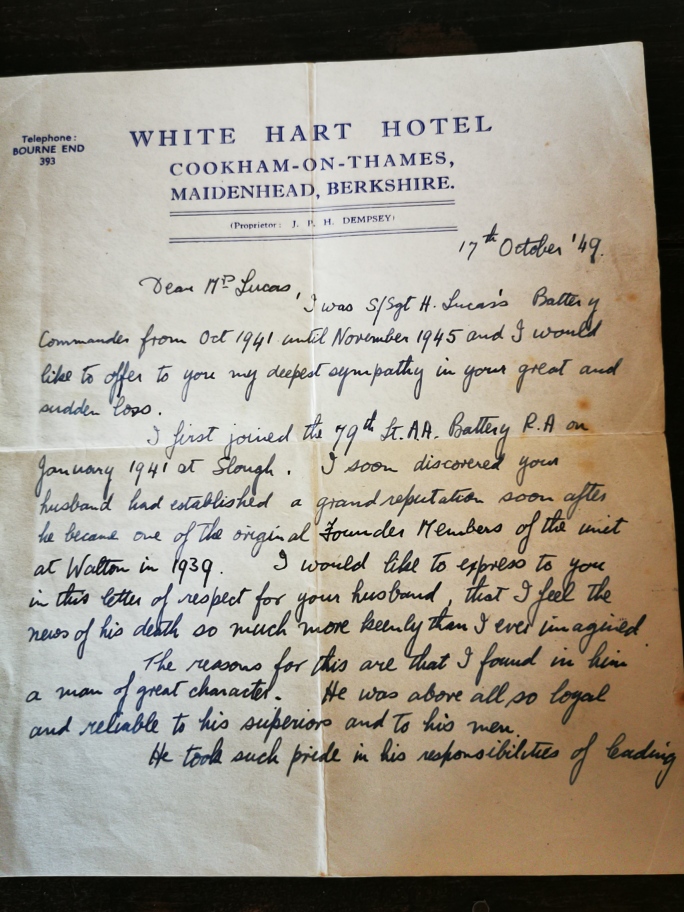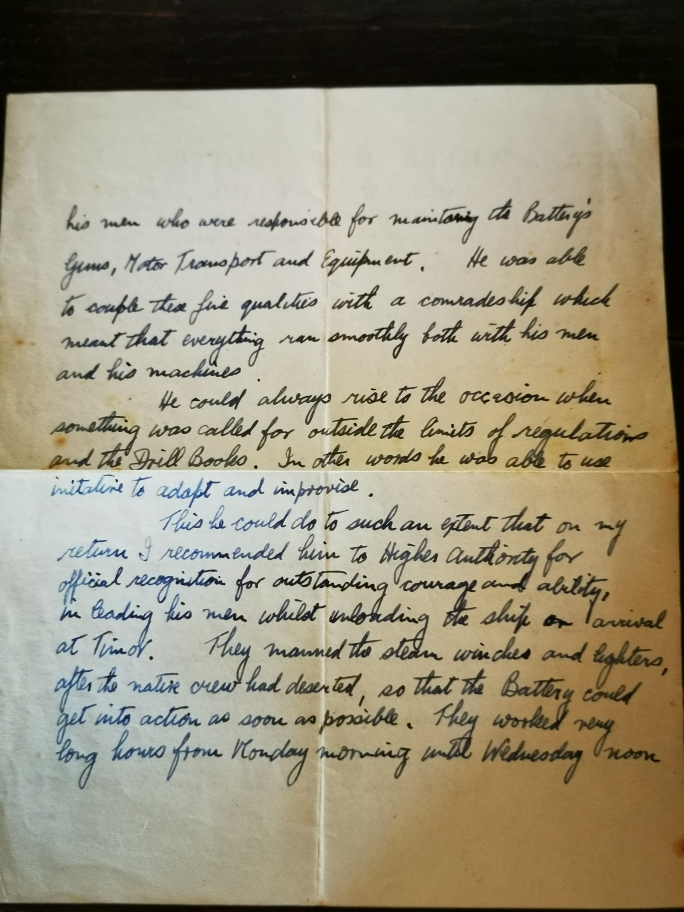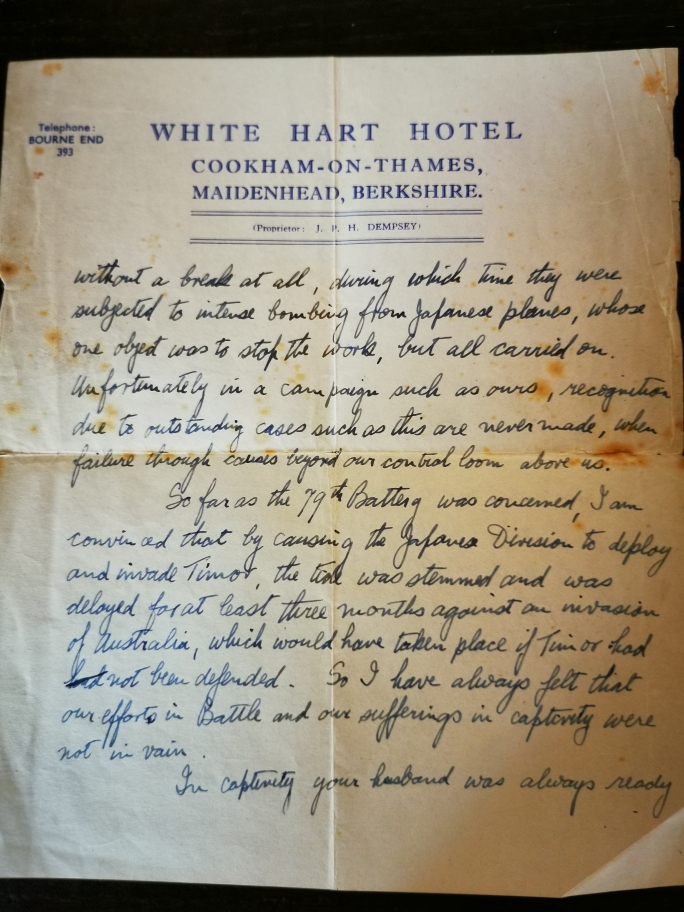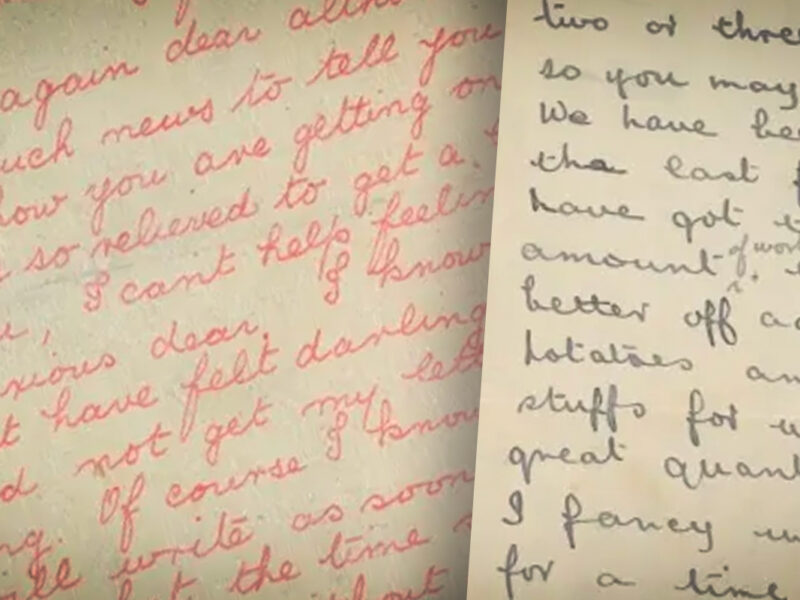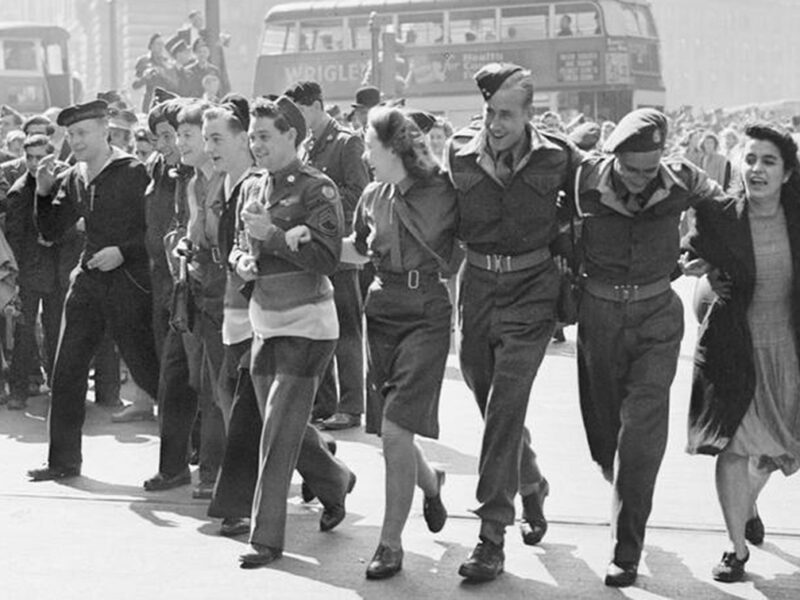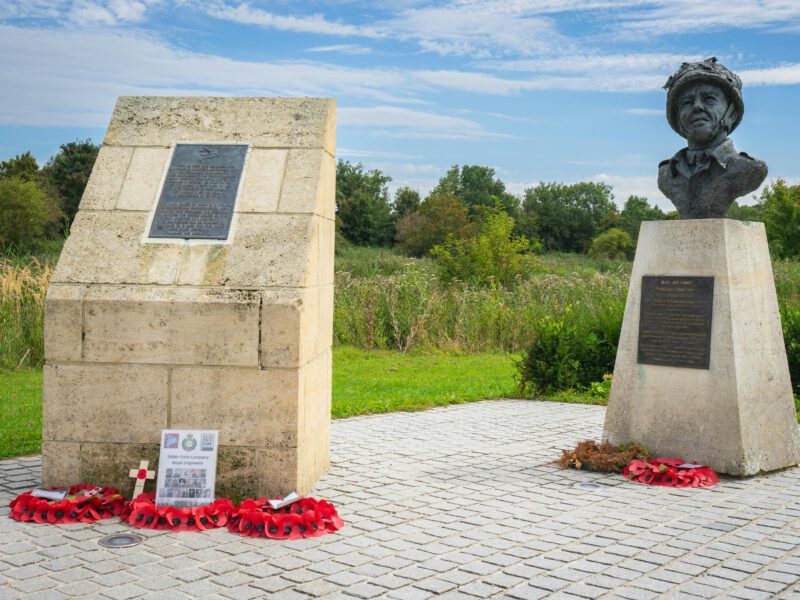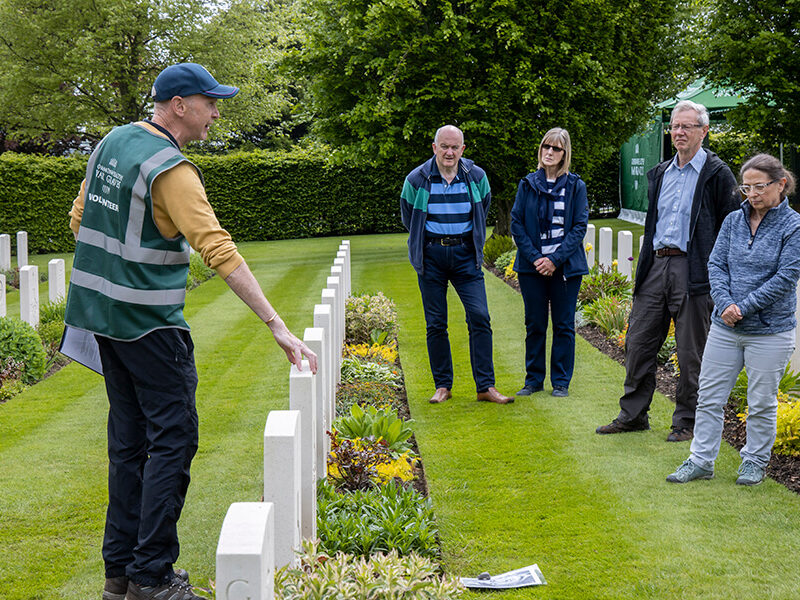The letter was given to me – Harry’s grandson – following the death of my grandmother in 1989. It was part of the treasured memories of her husband along with his letter written on the eve of departure from Gourock in which he professed his love for her, promised he would remain out of harm’s way and would save his army pay to send back for the house keeping. She heard nothing more for nearly 3 years
Major Dempsey’s handwritten letter which is still clearly legible, was written immediately after Harry’s death on October 15th 1949. He graphically describes Harry’s outstanding leadership under fire and motivation of the men responsible for the guns and motor transport of the unit fighting alongside their Australian comrades in the defence of the Timor aerodrome and subsequent retreat. He tells of their success in slowing down the Japanese advance on Australia and he writes of Harry’s character in maintaining morale with songs and football during three years of captivity and hard labour.
Harry was recommended by Dempsey for recognition of his bravery and exemplary service on Timor. In my research of the 79th’s deeds both in the Far East and during the Battle of Britain in defending key installations around London, including Prime Minister Churchill’s official country residence and the Hawker Hurricane factory at Langley, it is evident that both Luftwaffe and Japanese bombers suffered many losses from Harry’s guns. On Timor the 79th served under the Australian Colonel Leggatt as part of the doomed Sparrow Force with whom they were also imprisoned after defeat, at Fukuoka near Nagasaki. Harry would have been entitled to wear the famous slouch hat and badge of the Australian army. He appeared as a witness at the Australian War crimes tribunal and his evidence helped see the Japanese camp commandant convicted and executed.
Harry final

